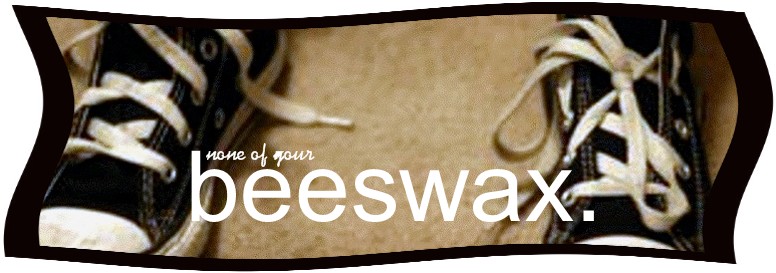 Rich Dad, Poor Dad: What the Rich Teach Their Kids About Money--That the Poor and Middle Class Do Not! by Robert T. Kiyosaki.
Rich Dad, Poor Dad: What the Rich Teach Their Kids About Money--That the Poor and Middle Class Do Not! by Robert T. Kiyosaki.Synopsis: Kiyosaki contends that the wealthy have learned to make money work for them, rather than working for their $$ like everyone else.
He uses the example of his real father, an educated, hardworking man who became superintendent of education in Hawaii, who gave his son the traditional counsel about hard work and financial gain. He died poor and bitter. Kiyosaki's "second father," his friend Mike's dad, was a high school dropout who taught Kiyosaki all that he knows about money. He is one of Hawaii's wealthiest men. (Based on the Barnes and Noble review)
He uses the example of his real father, an educated, hardworking man who became superintendent of education in Hawaii, who gave his son the traditional counsel about hard work and financial gain. He died poor and bitter. Kiyosaki's "second father," his friend Mike's dad, was a high school dropout who taught Kiyosaki all that he knows about money. He is one of Hawaii's wealthiest men. (Based on the Barnes and Noble review)
I've been blogging fewer than two weeks, and I already have a guest reviewer! Someone at Church asked my Dad to review Rich Dad, and here was his response (thanks for sending me a copy!):
"1. I really like the simplified view of financial understanding. I think most people would be more inclined to begin the process of getting financially literate, if we present the concepts this way.
2. I was really impressed with the way to look at an asset vs. a liability. In the personal finance area, people are confused and that is a great way to look at it. A home paid for is an asset while moving to a larger home with high payments is a liability.
3. I am really worried about characterizing his poor dad (the educated one)with the rich dad (the one that doesn't need formal education, so he gets rich)
4. He really has a severe bias against staying in school, making good grades and someday establishing a career working for someone else. He implies that we are stupid to do that. I can just hear a young man or woman saying, I will get an education dad, but I will not need to go to college. I willl learn this stuff and be rich. It really does not work that way, but his book suggests that it is that simple.
5. He calls his PhD father a socialist and the other father a capitalist.
Overall, I would not recommend that a church leader suggest this as reading material , I think the harm done by the education bias is more harmful than the added insight of financial literacy that it clearly brings. But it gives the reader the feeling that if he will just follow this he will be rich. I do not suggest that we teach our members to have "rich" as a goal. The goal lends itself to counterproductive short term and long term decisions. It has too many implications about behavior, and follows society's plan for finding peace. I think that is the opposite of our goals as members to live within our means, grow character and spend our time serving others, etc. I guess I really like the idea of learning how to think about money and finances, but the notion of getting rich and not working for others and not getting much formal education is really counter-productive. So, on balance, I would not suggest it to my grandchildren.
Thanks for suggesting that I read it. Now I understand what a couple of kids in the ward are talking about when they explain to me why they have elected not to go to college and sell multi-level products. Some of their quotes to me have come right from this book. They really are on the road to nowhere. (Frustrating to see bright kids have that as a goal)." Ross L.
So, Dad, what books would you suggest on this subject?
Has anyone else read this? What did you think?

3 comments:
okay -- check this out, Kel. www.minipearls.blogspot.com
Hi Kelly.
Wow, your dad is good. I totally agree with him about the value of education and character and hard work. Will he tell me what to do with my 401K?
I feel like i moved into the computer age today. I had a comment on a blog, and a question about a 401K.
Whoever asked that would not have the courage to ask me that in person. THey would be afraid that i would spend 2 hours on the topic.
Ross
Post a Comment